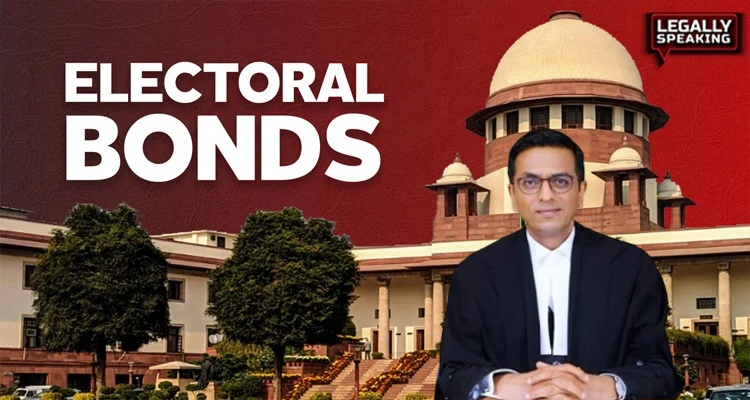
Senior advocate and bar leader Adish C Aggarwala has penned a letter to Chief Justice of India D Y Chandrachud, urging him to suo motu review the Supreme Court’s direction regarding the publication of information shared by the State Bank of India on its official website in the electoral bonds case.
A five-judge Constitution bench, led by the CJI, convened on Friday to hear a plea from the Election Commission seeking modification of the operative portion of its March 11 order in the electoral bonds case, and requested Aggarwala to mention the case again on March 18.
Aggarwala, who also serves as the president of the Supreme Court Bar Association (SCBA) and the All India Bar Association (AIBA), composed the letter to the CJI on March 14 in his personal capacity.
In a groundbreaking verdict issued on February 15, a five-judge constitution bench, presided over by the CJI, invalidated the Centre’s controversial electoral bonds scheme, which permitted anonymous political funding, deeming it “unconstitutional,” and mandated disclosure by the EC of donors, donation amounts, and recipients by March 13. Ordering the termination of the scheme, the apex court instructed the SBI, the authorized financial institution under the scheme, to submit details of electoral bonds purchased since April 12, 2019, until the present date to the Election Commission by March 6. Aggarwala has urged the CJI to review suo motu the direction stipulating that the Election Commission must publish the information shared by the SBI on its official website by March 13.
“I fully support the decision made by the five-judge bench of the Supreme Court, as nullifying the aforementioned scheme was imperative, for reasons delineated in the judgment, except for the direction that the ECI should publish the information shared by the SBI on its official website within one week of receiving the information, namely, by March 13, 2024, as specified in the judgment,” he stated.
He expressed concerns that the apex court’s ruling mandating “sudden disclosures of the identity of corporate donors, donation amounts, and recipient political parties will adversely impact the corporate donors.” Aggarwala contended that revealing the names of corporate donors and donation amounts would expose corporations to potential victimization.
“Therefore, I humbly request your lordship to subject the February 15, 2024 verdict to suo motu review of its direction: …The ECI shall publish the information shared by the SBI on its official website within one week of receiving the information, namely, by March 13, 2024, as stated in the judgment,” he stated in his March 14 letter.
“I further humbly clarify that I am making this prayer for the suo motu review of the judgment dated February 15, 2024, not on behalf of the Supreme Court Bar Association, but in my individual capacity as the Chairman of All India Bar Association, President of Supreme Court Bar Association, and former Vice-Chairman of Bar Council of India,” he added.
On March 12, Aggarwala had written to President Droupadi Murmu, urging her to seek a presidential reference of the apex court judgment in the electoral bonds scheme case and to refrain from implementing it until the top court has reheard the matter. Article 143 of the Constitution grants advisory jurisdiction to the Supreme Court and empowers the President of India to consult the apex court. If it appears to the president that a question of law or fact of public importance has arisen or may arise in the future, and it is beneficial to obtain the opinion of the top court, the president may refer the question for consideration.
Subsequently, the SCBA condemned the views expressed by its president in his letter to President Droupadi Murmu, urging her to seek a presidential reference of the apex court judgment in the electoral bonds scheme case. Distancing itself from Aggarwala’s views, the executive committee of the bar body, in a resolution issued on March 12, clarified that the members of the panel neither authorized the SCBA president to write the letter nor supported the views expressed in the communication.
On March 11, the top court directed the SBI to divulge details of the electoral bonds encashed by political parties to the EC by the close of business hours on March 12. While dismissing the SBI’s plea seeking an extension of time until June 30 to disclose the details, it also instructed the EC to publish the information shared by the bank on its official website by 5 p.m. on March 15. The EC posted the electoral bonds data on its website on Thursday, a day ahead of the deadline.




